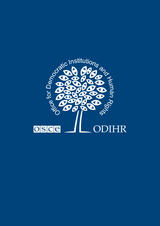
Countering the use of the internet for terrorist purposes

The OSCE contributes to international efforts to prevent and counter the use of the internet and new information and communication technologies for terrorist purposes, in line with the UN Global Counter-Terrorism Strategy, relevant United Nations Security Council resolutions and OSCE commitments.

Quick links
Our work
Our thematic and programmatic focus areas
The internet and digital technologies offer unprecedented opportunities for communication, innovation, economic growth and civic participation. At the same time, terrorists and violent extremist groups exploit these technologies to pursue their objectives.
Quite often, online platforms are misused to spread terrorist content, incite and radicalize others to terrorism, recruit supporters, raise funds and plan or facilitate attacks. Increasingly, violent extremists and terrorists also rely on emerging technologies, including artificial intelligence (AI), to amplify their reach and impact, often targeting vulnerable groups, particularly young people.
To address these challenges, the Transnational Threats Department provides a platform for governments, civil society organizations and the private sector to share experiences and promote good practices. These efforts focus on preventing and countering terrorist use of the internet in a way that fully respects human rights and fundamental freedoms, including freedom of expression and the right to privacy. Gender considerations are integrated throughout this work, ensuring that responses are inclusive and effective.
Featured
Activities, news and other highlights

Beyond bits, bytes and borders: how we untangle digital evidence dilemmas in Central Asia

OSCE conducts a national table-top exercise in Turkmenistan on addressing the use of the internet for terrorist purposes

Expert missions to Central Asia assess countries’ needs for handling cross-border electronic evidence requests for investigating online crimes, including terrorism
Resources
Official OSCE documents, publications and other manually selected resources

